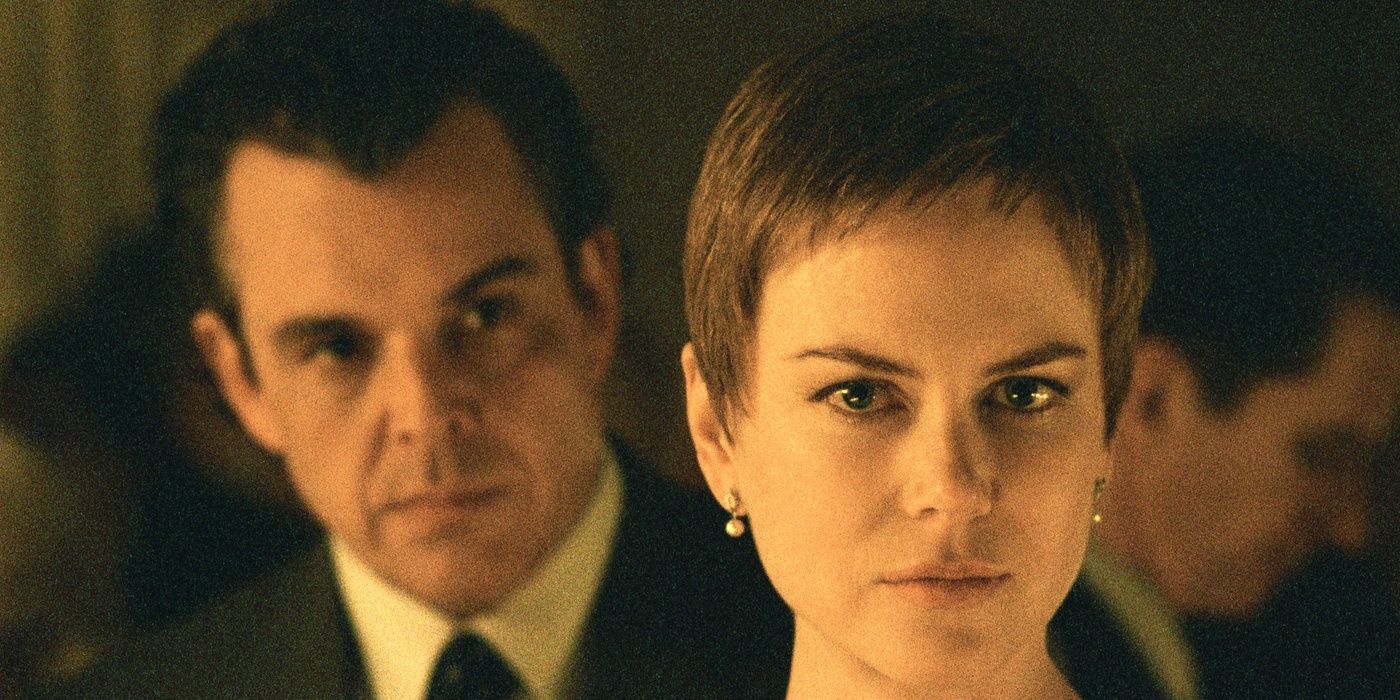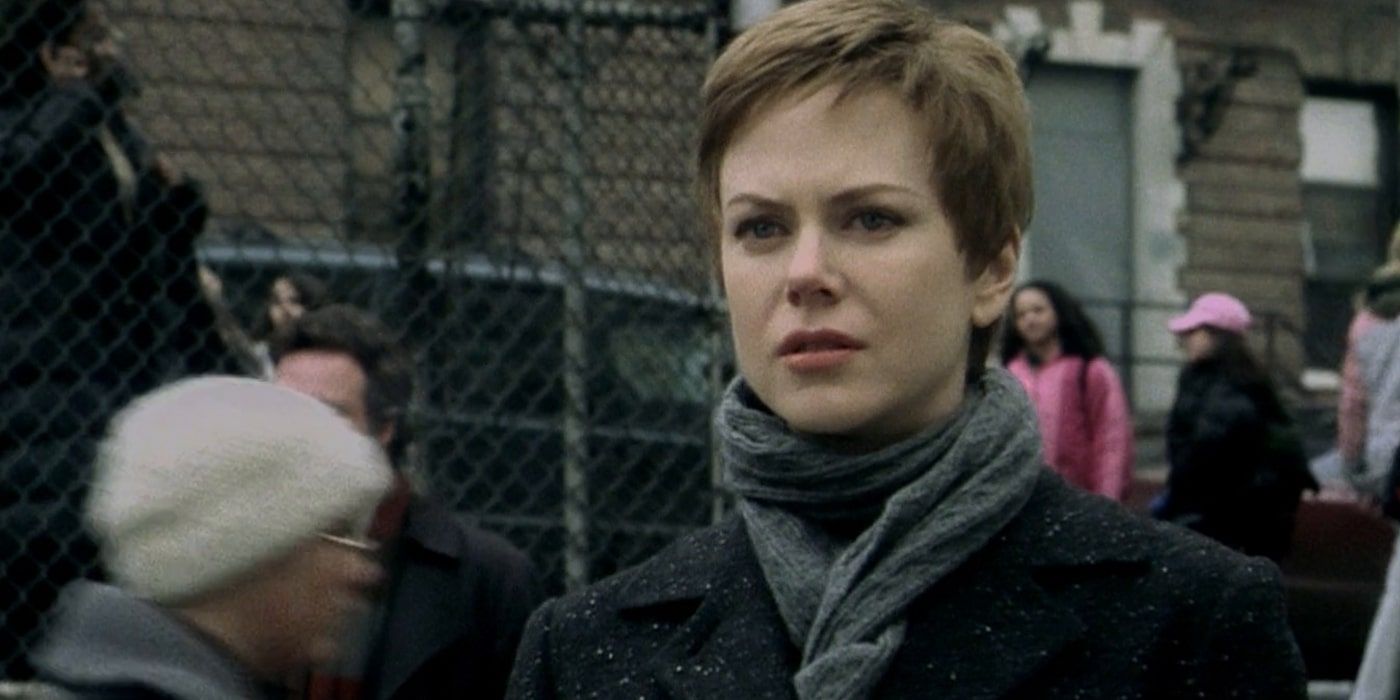The Big Picture
- Love is portrayed as a heavy burden in the film Birth, with connections forged by love being inexplicable and often unsettling.
- Jonathan Glazer’s film explores the coldness lurking beneath the surface of a wealthy family, emphasizing their struggle to handle an impossible problem.
- Nicole Kidman’s portrayal of Anna, who falls into a full-blown trance of love for a boy claiming to be her deceased husband, showcases her talent for conveying complex emotions.
Is love an inherently good thing? True love, that is, being spiritually tied to a soul mate who sees you and connects with you in a way that no one else possibly could. Generations upon generations have been raised on the idea of finding “the one”, even outside heteronormative standards, and to cherish that as a goal you strive towards in life. But what if there were downsides to a love like that? Could you move on from such a love, if something happens? What if your chance at recapturing that love requires you to tread unsavory moral waters? Is it possible to truly live in such a morass of confusion? These are the zones of interest that Jonathan Glazer sought to explore with his vastly underappreciated 2004 film Birth, resulting in one of the most profoundly unsettling experiences in 21st-century cinema.
Birth
A young boy attempts to convince a woman that he is her dead husband reborn.
- Release Date
- October 29, 2004
- Director
- Jonathan Glazer
- Rating
- R
- Runtime
- 100
What is Birth About?
Anna (Nicole Kidman) has been trying to move on from the death of her beloved husband Sean for 10 years now, and she’s betrothed to Joseph (Danny Huston), eager to commit herself to love again. Everybody in her family is happy for her, and she tells herself that she’s ready to forget about the past. Unfortunately for her, her wedding dinner party is crashed by a 10-year-old boy (Cameron Bright), who claims to be Sean resurrected from the grave. He pledges his devotion to Anna, insisting that his love for her is still as strong as ever and that they should get back together. For obvious reasons, Anna and the whole family are in disbelief and gobsmacked by the idea, which only gets worse since the boy won’t stop coming back every time they make him leave. You’d think this would be the end of that, except Anna gets the idea that…maybe the boy is telling the truth.
Birth Treats Love As A Mysterious Burden
While the notion of your love crossing oceans of time and death itself coming back to you is a fanciful one, Birth views the connections forged by love as a heavy burden that no one can truly explain. Sean may sell himself as a romantic idealist yearning for Anna’s embrace, but he carries himself with the sullen disposition of a harbinger of doom. Sean is deeply dismayed by why nobody else understands what he sees as the truth. Bright’s performance creates a paradox, where he is at once a child in his stubbornness and emotional purity and also an adult in his social dexterity and body language, adding to the mystery of what his true nature is. It doesn’t help that Sean has far too much knowledge about the sex life and intimate details that only adult Sean and Anna would have known about, and he’s far too comfortable sharing such info in front of people who are clearly beyond scandalized by this. Not that that would occur to Sean, who doesn’t even find it strange to ask Anna to break up with Joseph, as he sees it as just another sign of the love he has for Anna. This would all be bad enough for an adult stranger to show up making these claims, but to have a small child who acts nothing like a small child be the messenger propels it into an uncanny valley nightmare.

‘The Zone of Interest’ Review: Jonathan Glazer’s Haunting, Restrained Journey into Evil
Glazer’s approach to the Holocaust film is wholly unique and undeniably terrifying.
Jonathan Glazer creates an aesthetic where the outside world is unimportant white noise and familial connection is filtered through arranged small talk and greeting card sentiments (like how May is a great month for a wedding). In a manner that’s reminiscent of Eyes Wide Shut, the subculture of the rich white upper class is defined by communication built on polite passivity and an emphasis on things going smoothly. When Sean first arrives, the family tries to get rid of him by being as direct and kind as possible, so when that doesn’t work, you can feel how utterly lost these people are at dealing with an impossible-to-solve problem. The coldness lurking underneath the practiced patterns makes Anna’s family feel less like normal humans and more like vampires doing their best to blend into the human environment and stay out of the sunlight. This is emphasized by how Harris Savides‘ cinematography submerges the world in heavy grain and gloomy zooms, constantly pulling us towards these people we feel actively distanced from. The fact that Anna and her family live in rooms that are usually basked in darkness or lit with the ambiance of candles drives home this distinction, subconsciously showing how ill-equipped these people are when it comes to matters of passion.
Nicole Kidman Gives One of Her Best Performances in ‘Birth’
If a film is this off-putting and intentionally alienating, then how is an audience supposed to get invested in it? By centering it around Nicole Kidman giving one of the most devastating performances of her whole career. She’s proven herself to be one of the most daring actresses in recent memory, willing to dive headfirst into some of the most disturbing material, from The Others to Stoker to The Northman, committed to bringing empathy to characters who shoot way outside the realms of being “likable.” Anna comes off as the only person in touch with her feelings in her family, and Joseph makes for a good pairing with her, symbolized by a sex scene showing how equally passionate they are for each other. Her love for him is earnest, and she’s initially just as frightened of Sean as everyone else, but there’s a nagging feeling that she’s also been waiting for Sean to come back. Her insistence on moving on and forgetting about the past feels like she’s practiced those statements in the mirror, and even Joseph is a tad skeptical of her assertions before Sean even shows up. She puts up a pretty good fight, but things change when Sean collapses after being personally rejected by Anna, and she unexpectedly gets hit with an instinct to care for him. This leads to arguably the most famous scene from the film: the opera scene.
Right after Sean collapses, Anna and Joseph go to an opera performance, and Anna is clearly shaken by Sean’s sudden condition. She tries to focus on the show, but she can’t get the possibility of her returning love out of her head. The opera score has been playing since precisely when Sean falls to the ground, so the music itself is associated with the hold that Sean has over Anna, compelling her to ruminate. The camera reflects her increasing emotional claustrophobia, slowly zooming in for an extreme close-up for two straight minutes as we experience every little expression that elides into each other. Few actresses are as masterful with the art of the close-up as Nicole Kidman, and few films have understood her gift as well as Birth. Living up to the adage that you fall in love slowly and then all at once, Anna carries herself through a mini-character arc that takes her from shattered fear to hesitant contemplation to rapturous acceptance, broken out of her stupor at times by Joseph’s intrusions. In this emotionally glacial world, we don’t need this implosive passion explained with words, as it’s all right there in her face.
When Anna decides to believe Sean, she does so knowing how patently absurd it is. She confesses that she “wanted him to be Sean,” but that she didn’t “want to fall in love with Sean again.” It’s more than likely that she knew if this was truly her Sean, she would fold quicker than a lawn chair, and that she did. Her love for Sean manifests itself as essentially a full-blown trance, driving her to throw any sense of optics out the window and to commit herself fully to planning a life with Sean. If any point in the film is going to drive a certain portion of the audience away, it’s here, where she engages in several behaviors that make sense to her, but are abjectly cringe-inducing from the outside looking in. She freely discusses her rationalization and plans with Sean’s mother; she discusses the idea of marrying once Sean is of age; she sits with him in a bathtub and even shares a kiss with him. This is the person we’ve become attached to, the only person who feels fully three-dimensional enough to trigger empathy, and she’s forced the audience into a tight spot where they have no choice but to swallow the massive pill or reject the experience altogether.
‘Birth’s Ending Depicts Love As Fatalistic
People want to believe that love is something that frees us and allows us to be every part of who we are, to live life with a wider breadth of emotion and drive. But Birth suggests that love can be quite the opposite; it can be foreboding, demanding, and liable to drive a person to absurd lengths to prove their value. It’s telling that we never learn much of anything about the Sean that Anna had a relationship with, and while child Sean knows many facts about adult Sean and how he and Anna became a couple, that doesn’t mean he irrefutably has the love in him, that tangible lived-in emotion that builds over years of devotion. The fact that Anna is so ready to dive into this (let alone claim she can’t be held responsible for thinking it was a good idea) shows not only that “true love” is a powerful force that will change your life and worldview, but it is also one that can be built off of something as shallow as getting the right answers at the right time. How can “eternal” love be so powerful if it can creep back in with so little effort? Human beings are still animals at the end of the day, acting out of chemical reactions and making sense of irrational feelings, and Birth is as skin-crawling as it is because it argues that while we may be animals, we still yearn for love and all that it brings us, no matter the potential consequences. It holds a mirror up to its audience and, like the best Twilight Zone stories, it points at you and goes “you never know until it happens to you.”
Birth is available to rent on Amazon in the U.S.
Watch on Amazon
Source link


